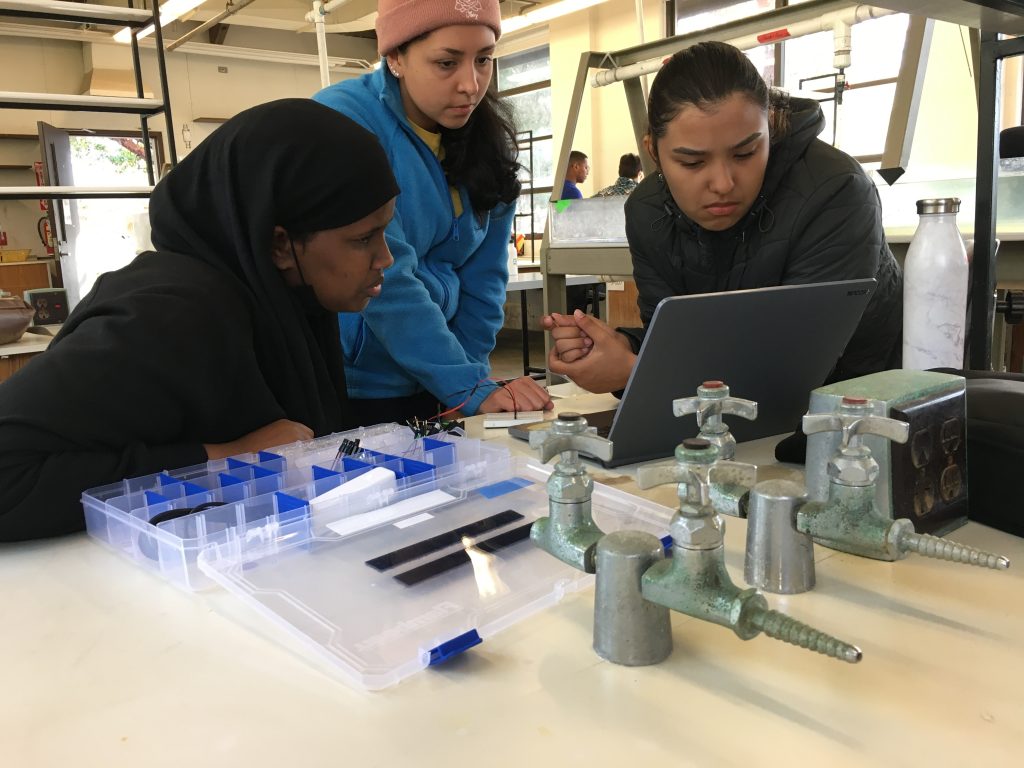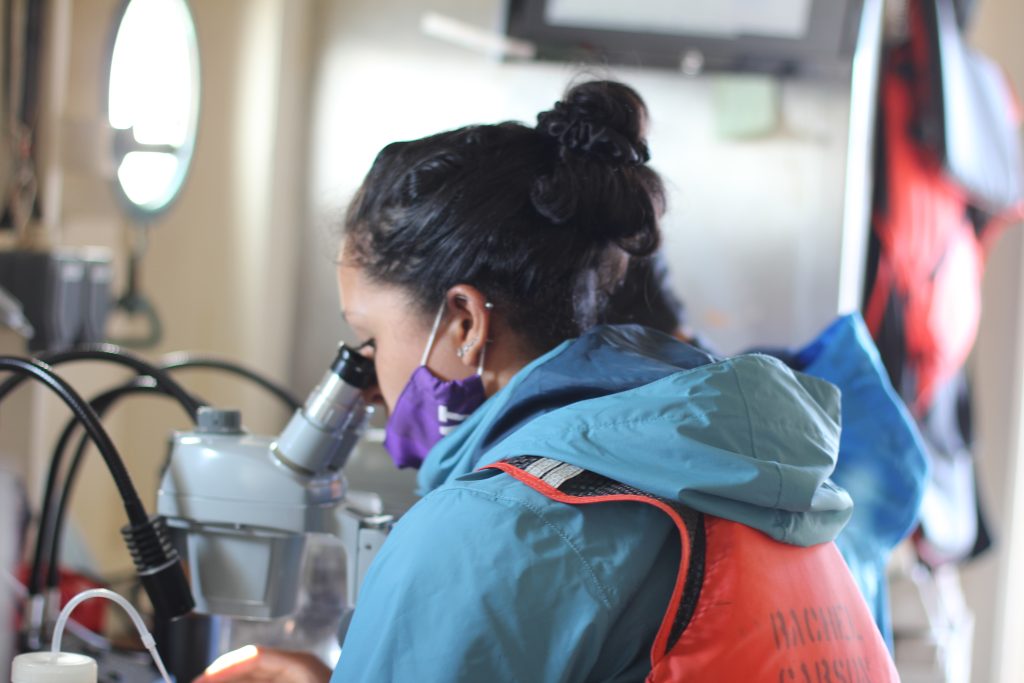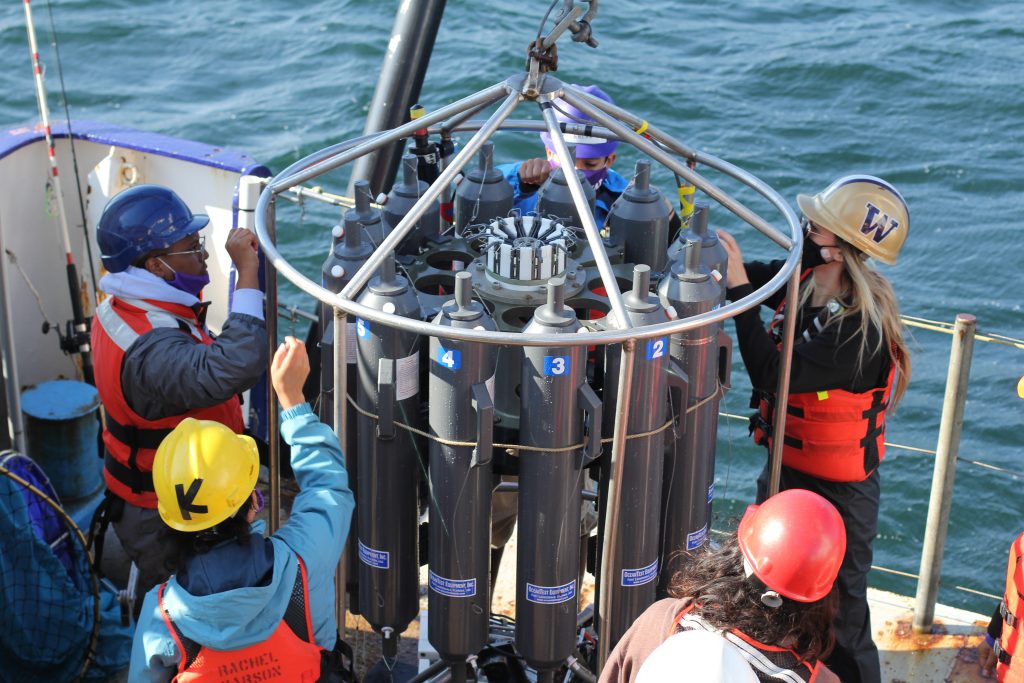Immersive marine science opportunity for UW transfer students: looking ahead to year two of the GEODUC Program
Heading into its second year, the GEODUC program, based at the UW College of the Environment, is a two-week immersive experience for incoming transfer students interested in marine science.
José Guzmán, faculty in Marine Biology and SAFS, describes GEODUC as a unique opportunity that acts as a bridge program for students from community colleges to build confidence with quantitative skills and create a support network before they arrive at campus. Through this program, they build quantitative skills while analyzing the data that they collect. The program is co-lead by José, Mikelle Nuwer and LuAnne Thompson (Oceanography), and Kerry Naish (Marine Biology and SAFS).

The NSF-funded program is based on two key phases. Kicking off with a 10-day trip to the UW marine field research station at Friday Harbor Labs in the weeks before they start at UW, students get hands-on experience with fieldwork and experimental design. Based on an island in the middle of the Salish Sea, this is a special experience where students are immersed in hands-on marine science while building community.
Key scientific and social themes run throughout the 10 days, with the aim of building community through research, and celebrating our shared identities. Students engage with scientific methods, co-design and run experiments, take field trips, learn quantitative skills through the analysis of the data they collect, are introduced to coding and data visualization in Python, and join in daily social activities. Throughout the 10 days, students engage with the geosciences in new and exciting ways, and are prepared for marine geoscience classes once they join UW.

The second phase supports students for the rest of the academic year through weekly meetings with faculty, advisers and peer GEODUC students. Each quarter focuses on a different theme. Examples include how to succeed at UW, how to find opportunities in UW research labs, communicating effectively, and exploring different career paths within the marine geosciences. Guest speakers also join from across the College of the Environment, from government agencies like NOAA, and from local businesses to give professional perspectives and guidance.
A particularly exciting facet of this second year of the GEODUC program (which starts in September 2023) is that past participants can act as peer supporters and mentors to this year’s cohort. This aspect exemplifies the opportunities and the support the program offers for those starting off on their geoscience journey as a transfer student.

Eleven students participated in the summer bridge program at Friday Harbor Labs last year, and four additional students joined the seminar discussions. Of the 15, two have added a double major in the geosciences, and one student switched into a geoscience major, already demonstrating the success of the GEODUC program.
Want to be a part of the GEODUC program this year?